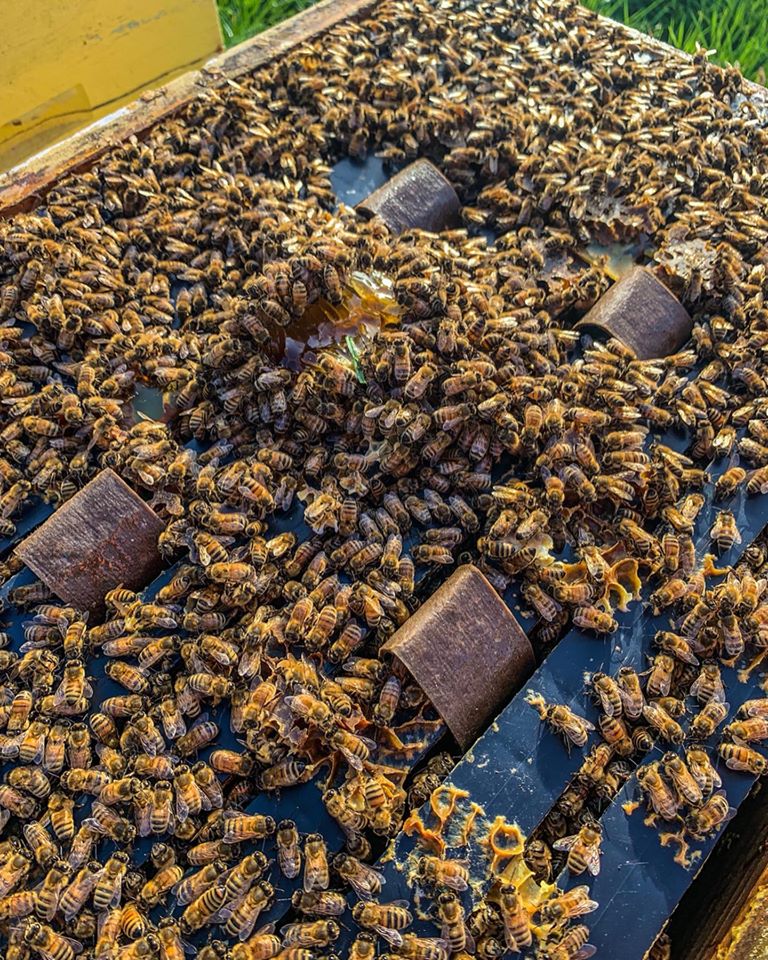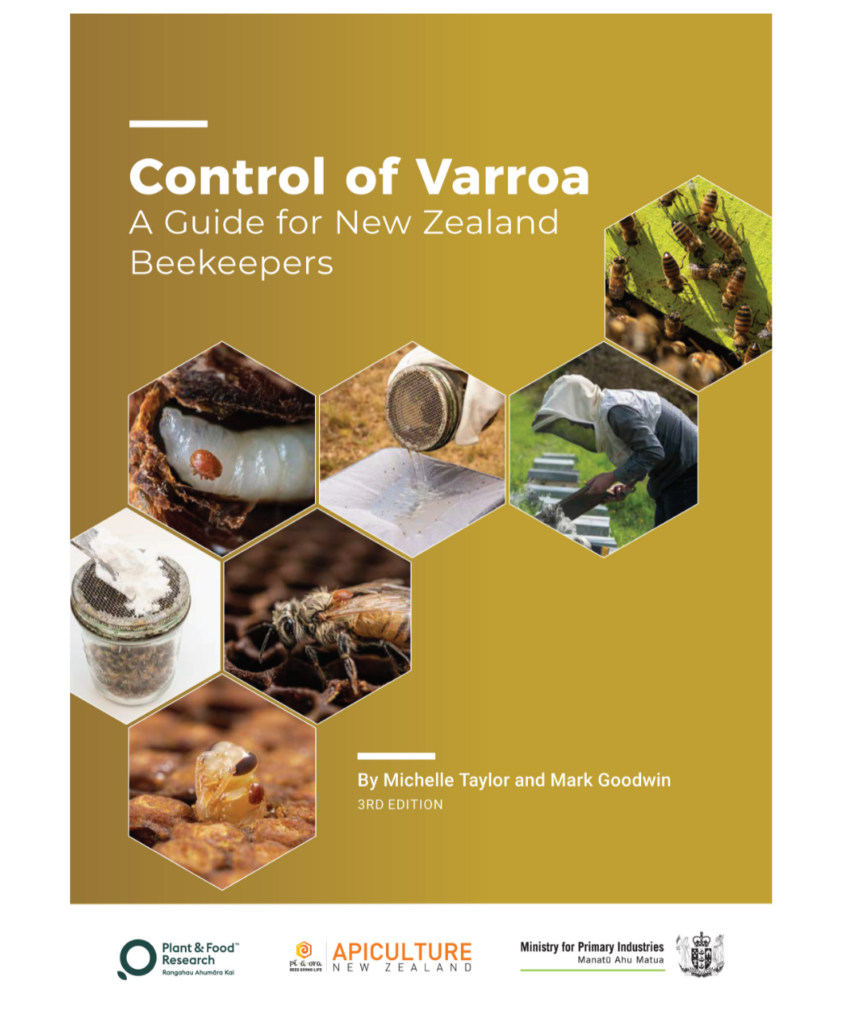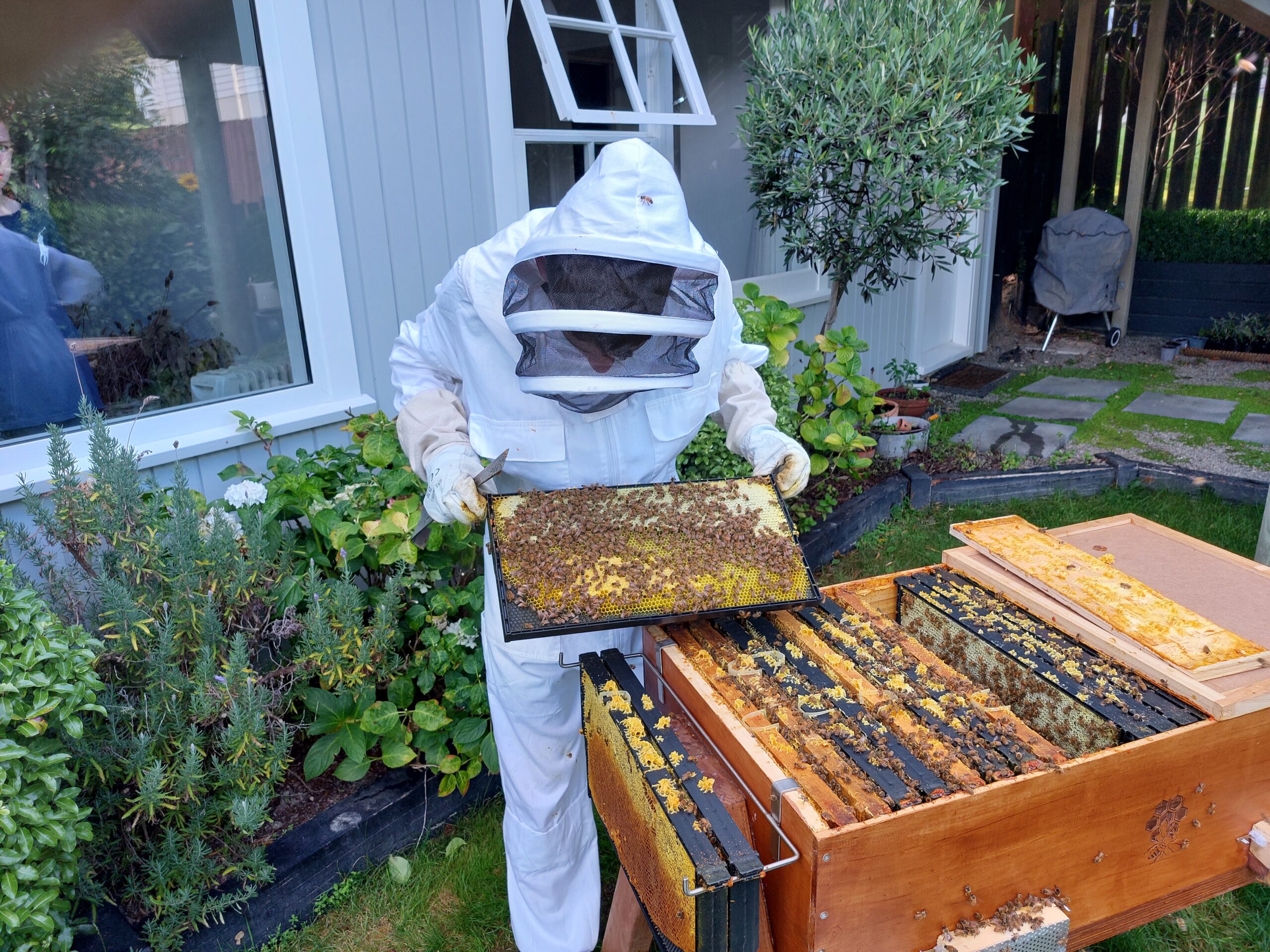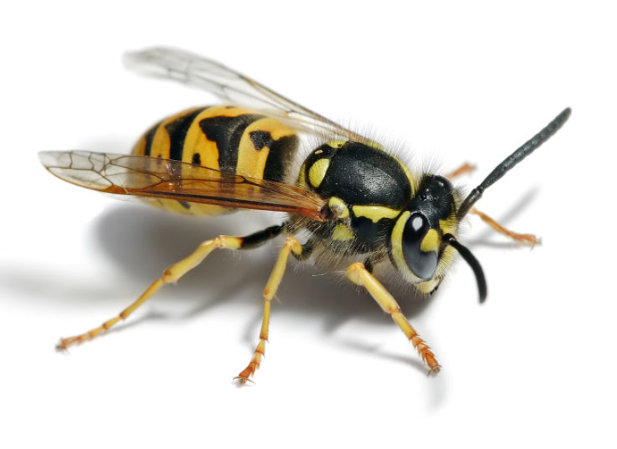
Having wasp problems? This is a very common menace to the beekeeper! Wasps can rob out a hive very quickly once they get in. Prevention is the only way, there is no cure!
Wasps will feed on sugar most of the summer for their own food. However, in early spring, as well as late summer, they need protein to feed their larvae.
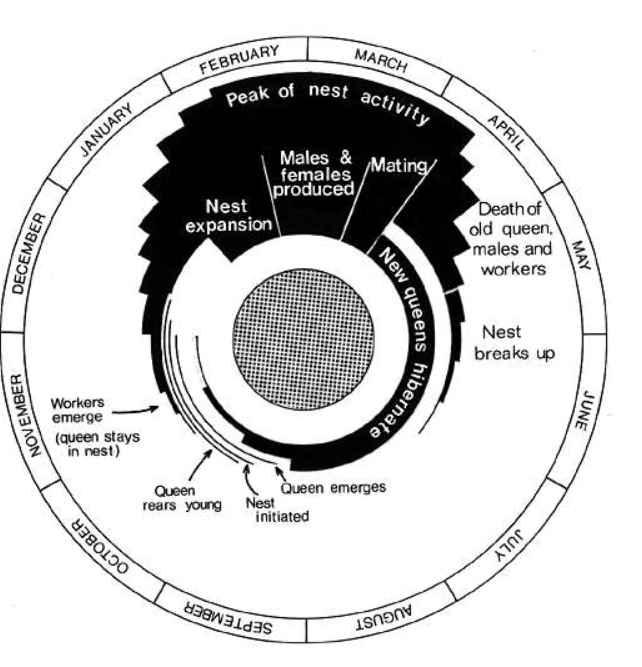 At these times, wasps will not only take the honey stores but also bee larvae.
At these times, wasps will not only take the honey stores but also bee larvae.
Suggested solutions:
- Reduce hive entrances and or use the Hivegate https://www.hiveworld.co.nz/product/hivegate/
- Using a robbing screen in combination with a hivegate will give you maximum chance of success: https://www.hiveworld.co.nz/product/robbing-screen/
- Use wasp bait that they will take back to the nest.
There are two commercial wasp baits we recommend:
- Vespex – a protein-based bait so it will only work when the wasps are taking protein.
- Hawkeye – a protein and sugar bait which will work all year round.
Wasp traps have only limited success although they are worth a try.
However, a bio-friendly option is available…
Plants that wasps do not like:
- Peppermint and Spearmint. While the smell of mint is refreshing to us, many pests dislike the sharp and intense aroma. A minty fragrance will have wasps flying in the opposite direction, and as peppermint and spearmint smell particularly strong, these are best for repelling such pests.
- Wormwood. Another plant which will actively keep wasps at bay is wormwood. This bitter-tasting herb is often used for medicinal purposes, particularly for aiding digestion and killing internal parasites. Wormwood contains a substance called absinthe, and this is actually toxic to insects, so wasps will steer clear for good reason. The plant is a danger to them if ingested. Because wormwood is highly toxic, avoid planting if you have young children running around.
- Lemongrass. Wasps can’t stand the intense smell of lemongrass, which is produced by the citronella oil it contains. In fact, this lemony scent will keep flies, mosquitoes and rodents at bay at the same time, so it’s a true ally if you struggle with pests in your yard or around your home.
- Eucalyptus. The eucalyptus tree produces an oil which is often used to reduce pain and inflammation. The overwhelming scent will keep all kinds of unwelcome pests at bay. In fact, as well as wasps, the smell of eucalyptus will ward off flies, mites and mosquitoes to name a few. So this tree is certainly worth your consideration if you’ve got a good amount of space available in your backyard. In contrast, fruit trees will actively attract wasps, so consider the best placement to keep wasps away from areas you frequent.
- Pennyroyal is another good plant to raise if you’re warding off wasps. This unusual-looking perennial herb produces successive bursts of blooms on its vertical and often cascading stems. It’s quite a sight in any yard, and will keep wasps at bay because of its intense minty smell — it’s actually part of the mint family which is why wasps aren’t overly keen. It’s known to keep flies and fleas away as well, so it can be a useful addition to any garden. Pennyroyal oil is highly toxic if ingested, so steer clear of this plant if you have young children.

